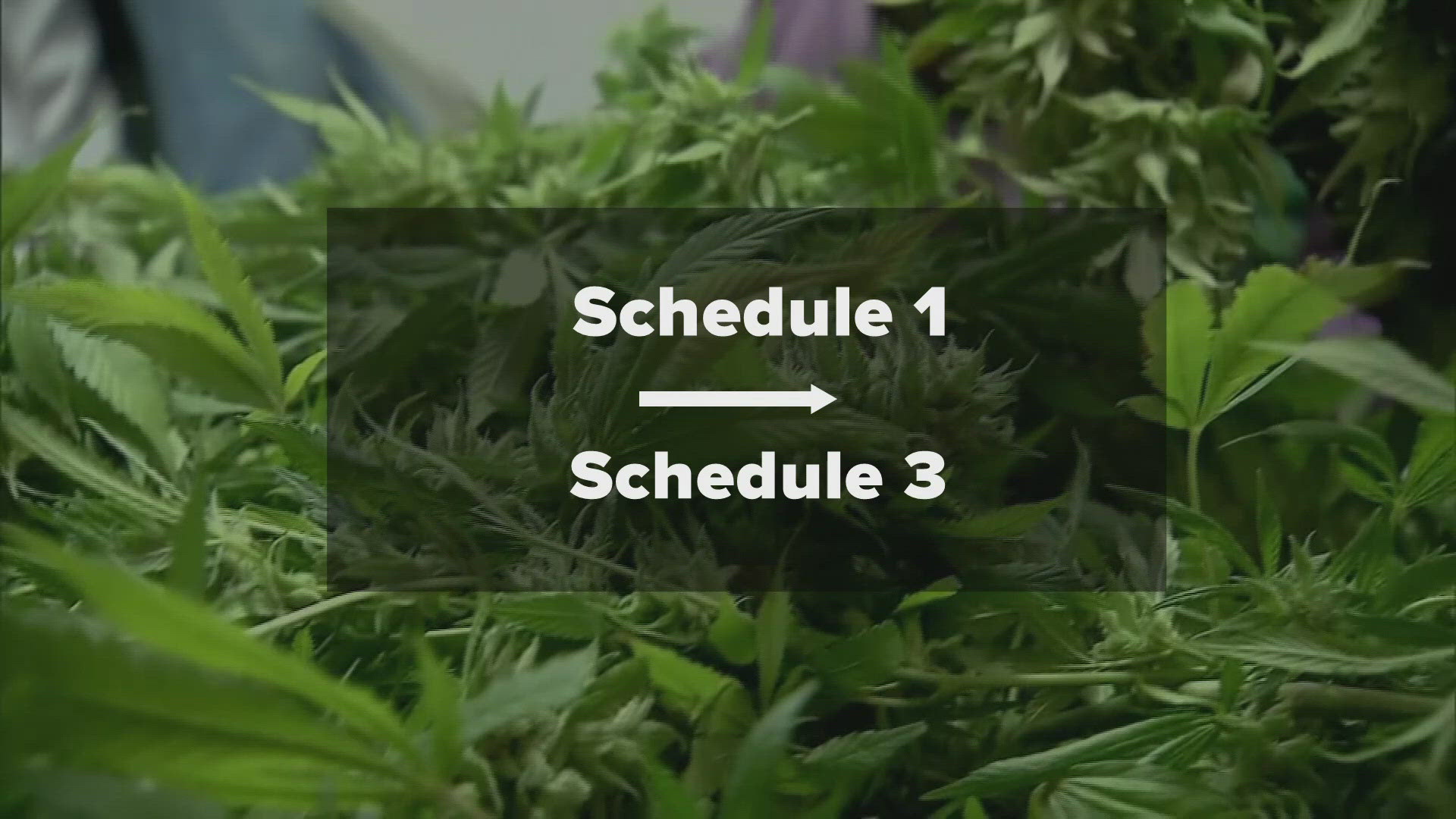KNOXVILLE, Tenn. — The U.S. Drug Enforcement Administration may soon reclassify marijuana after the Associated Press reported on a proposal that still needs to be reviewed by the White House Office of Management and Budget. That proposal would reclassify marijuana as a Schedule Three drug, instead of the current Schedule One restrictions.
Currently, marijuana is prohibited in Tennessee for medical and recreational uses. However, Delta-8 and THCa products have been introduced across the state.
"What is being debated is whether or not we should have a commercial marijuana industry," said Luke Niforatos with Smart Approaches to Marijuana.
In Tennessee hemp is legal while marijuana is not. Hemp contains less than 0.3% of THC. Several THC products on the market in the state effectively use different forms of the chemical in concentrated varieties to illicit a sensation similar to the psychoactive effects of marijuana.
However, medical leaders said children as young as 6 years old are getting their hands on THC products.
"When it comes to gummies, they can overdose because they can eat, like, a whole package, just like Gushers," said Kristen Robinson, with Village Behavioral Health. "Kids are actually smoking high potency marijuana, which leads them having to vomit and usually leads to ER visits."
The DEA said high dosages of THC can cause nausea, and doctors in East Tennessee said they are seeing the symptoms locally. Other experts said marijuana products sold in other states today are more potent than in the past. Community leaders said companies are also targeting young people to sell to.
"The marijuana industry is invested in by big tobacco. They're following the tobacco playbook of targeting younger demographics," said Niforatos.
Law enforcement also said that retail stores are, at times, selling products with higher THC levels.
"A lot of packaging that is disguised and saying that it's Delta-8, but actually does contain illegal substances here for Tennessee," said Brendan Deboer, with District 9 Drug and Violent Crime Taskforce. "Our communities are just not aware of what the products are, that are going out to, potentially, our young people."

